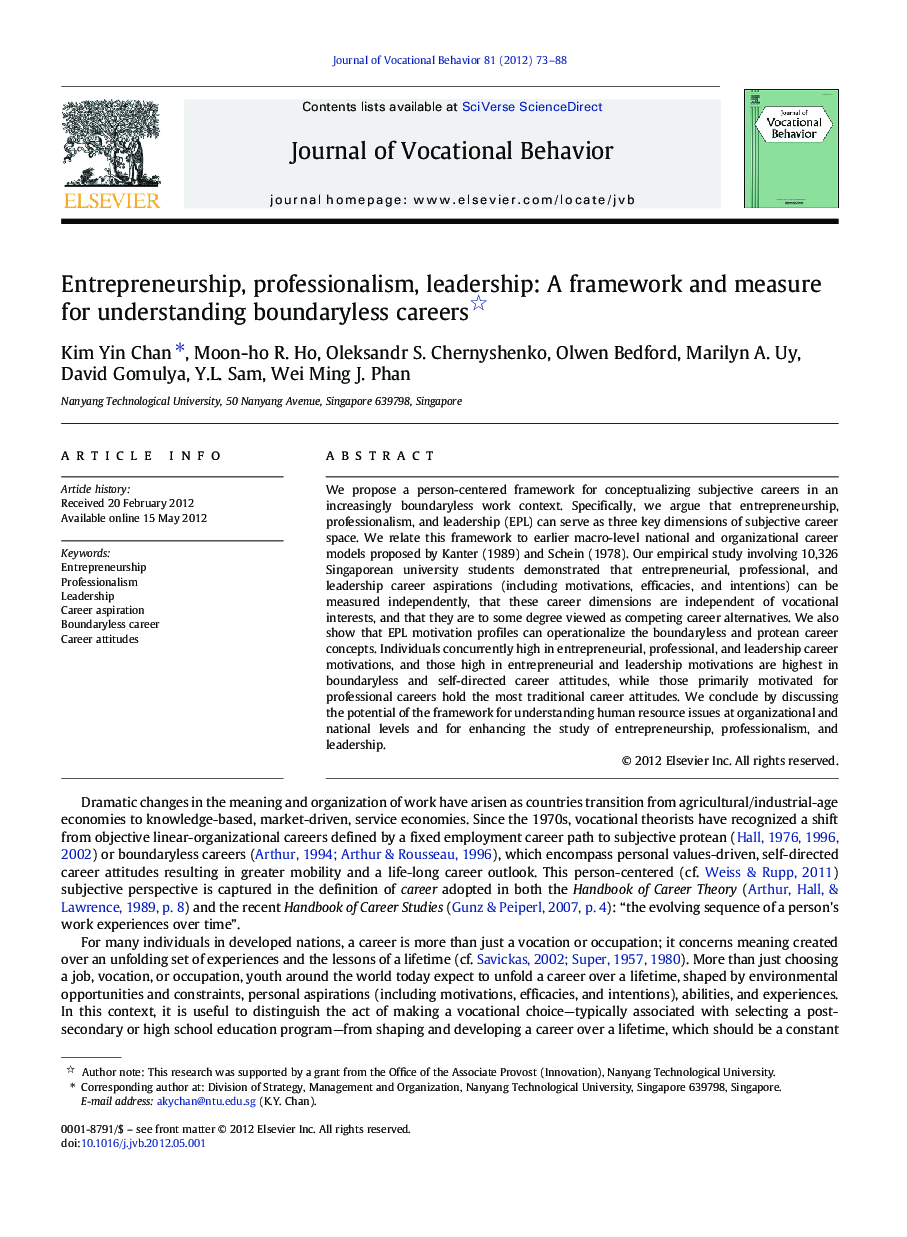| Article ID | Journal | Published Year | Pages | File Type |
|---|---|---|---|---|
| 887062 | Journal of Vocational Behavior | 2012 | 16 Pages |
We propose a person-centered framework for conceptualizing subjective careers in an increasingly boundaryless work context. Specifically, we argue that entrepreneurship, professionalism, and leadership (EPL) can serve as three key dimensions of subjective career space. We relate this framework to earlier macro-level national and organizational career models proposed by Kanter (1989) and Schein (1978). Our empirical study involving 10,326 Singaporean university students demonstrated that entrepreneurial, professional, and leadership career aspirations (including motivations, efficacies, and intentions) can be measured independently, that these career dimensions are independent of vocational interests, and that they are to some degree viewed as competing career alternatives. We also show that EPL motivation profiles can operationalize the boundaryless and protean career concepts. Individuals concurrently high in entrepreneurial, professional, and leadership career motivations, and those high in entrepreneurial and leadership motivations are highest in boundaryless and self-directed career attitudes, while those primarily motivated for professional careers hold the most traditional career attitudes. We conclude by discussing the potential of the framework for understanding human resource issues at organizational and national levels and for enhancing the study of entrepreneurship, professionalism, and leadership.
► Entrepreneurship, Professionalism and Leadership are proposed as career dimensions. ► Career aspirations in these dimensions can be measured; are separate from vocational interests. ► These dimensions can also operationalize boundaryless and protean career concepts.
